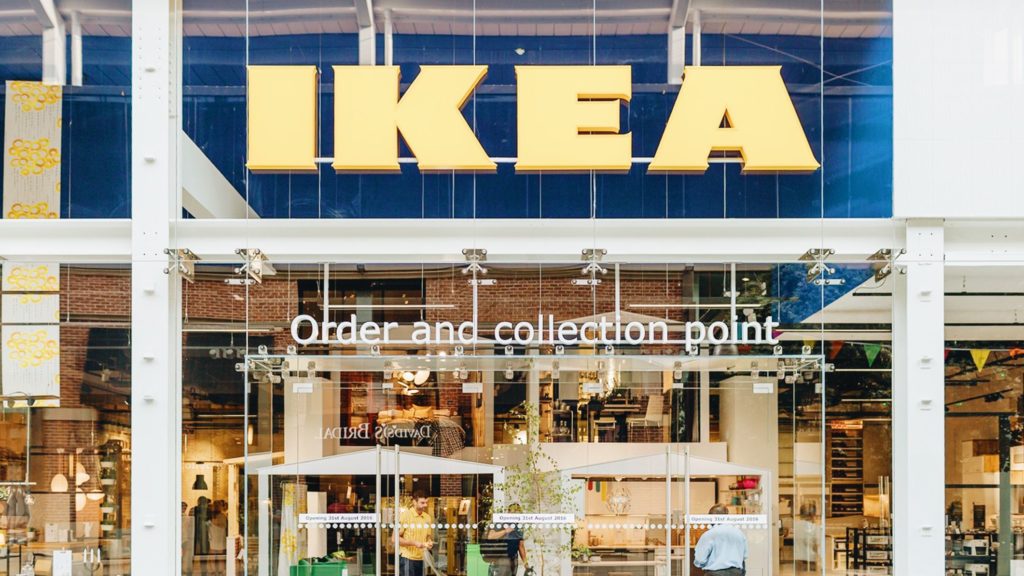Earlier this year, IKEA began piloting a buy-back program for its used furniture. Now, the furniture giant is looking to make the circular economy-inspired scheme permanent.
The largest furniture company in the world is offering customers vouchers worth up to 50 percent of the original price of each item. Furniture must be from IKEA, but proof of purchase is not required. The buy-back scheme applies to fully-assembled drawer units, tables, chairs, cabinets, desks, shelving, and cupboards.
Items returned with no scratches receive 50 percent of the original price in store credit. While items with minor scratches receive 40 percent. Any “well used” items, with many scratches, will still receive 30 percent. And, if the furniture can’t be sold second-hand, then you’re not out of luck: IKEA will dispose of old items “responsibly and recycle them wherever possible,” according to the website.
IKEA launched the pilot program at its store in Conshohocken, Pennsylvania, in August, which ran through September 19. The furniture company intends to make the buy-back scheme permanent nationwide.
“We are passionate about making sustainable living easy and affordable for the many, and want to be part of a future that’s better for both people and the planet,” Jennifer Keesson, IKEA sustainability manager, said.
The U.S. store isn’t the first to trial taking back second-hand furniture. The scheme launched earlier this year in 27 countries, and used furniture sales had been tested in Glasgow and Edinburgh for more than a year.
Repairing, reusing, recycling, and buy-back schemes all help to minimize unnecessary waste. And a circular approach to production and consumption has a significant impact on sustainability efforts worldwide. It drastically reduces the quantity of usable items sent to landfill, thereby also reducing the need for consumption, production, and its related carbon footprint.
IKEA and sustainability
The new buy-back scheme is just the latest sustainability program from IKEA.
The Food is Precious Initiative launched in 2017 with the goal of minimizing waste within the company’s popular food operations. By February 2019, IKEA had reduced its food waste by 50 percent; saving 1.4 kg or three million meals worth of food from waste.
Also in 2019, the company announced it would invest $220 million in an effort to become climate positive. IKEA said it aimed to invest the money in green energy, reforestation, and forest protection to help mitigate its own carbon footprint.
IKEA continues to emphasize plant-based food options, even removing meat from its Christmas 2019 menu. It banned all single-use plastic and began sourcing all paper from certified sustainable suppliers.
“Our ambition is to reduce more greenhouse gas emissions in absolute terms by 2030 than the entire IKEA value chain emits while growing the IKEA business,” said Inter IKEA Group CEO Torbjörn Lööf in a statement.


